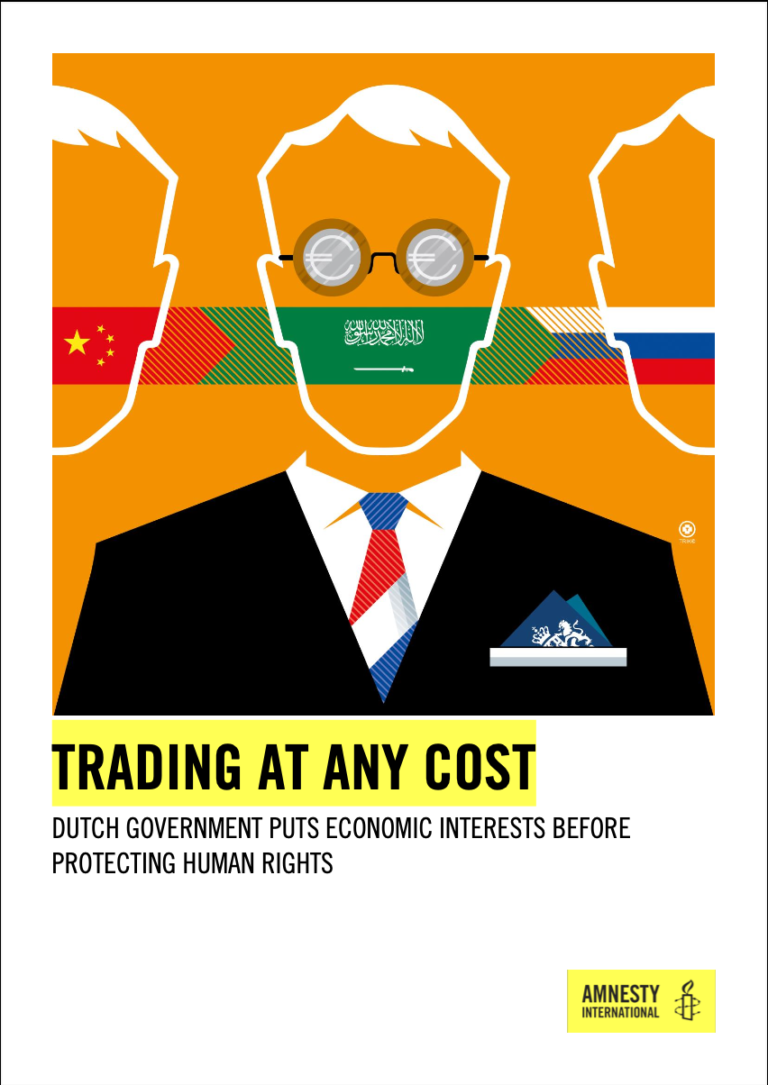For over a decade, the Netherlands has put its trading interests above its duty to protect against human rights abuse by companies operating under its jurisdiction.
This report, based on Amnesty International research conducted between March and December 2022, shows that the Dutch government has incentivized Dutch companies to do business in China, Saudi Arabia and Russia without ensuring human rights due diligence responsibilities are met. These countries are characterized by severe repression of freedom of expression, association and assembly, a lack of rule of law and by high human rights risks for companies. Such repressive contexts create risks of systemic and grave human rights harm and require heightened due diligence, which must include assessing the impact that the businesses might have on the perpetuation of the repression. In these contexts, the Dutch government should warn companies of the heightened risks, communicate clear heightened due diligence standards, and set conditions for receiving government support.
Amnesty International research shows that, as part of its trade policies since 2011, the Dutch government provided extensive diplomatic and financial support to Dutch companies with (planned) activities in China, Saudi Arabia and Russia. It did so without adequately warning them of the high risks, and without sufficiently communicating heightened due diligence standards. In addition, the Dutch government set only vague and noncommittal human rights due diligence conditions for receiving government support. The Dutch government therefore failed in its duty to protect human rights.
In this report, Amnesty International also assessed the due diligence practice of a number of companies operating or formerly operating in sectors with heightened human rights risks: the tech sector in China and Russia, and the construction sector in Saudi Arabia. In China and Russia, the risks relate to state-organized mass surveillance and repression. In Saudi Arabia, the risks relate to migrant workers’ rights and forced evictions, among other things. These risks call for heightened due diligence, yet Amnesty International found that the quality of human rights due diligence by the companies was generally poor.
The Dutch government’s reluctance to adequately mainstream human rights in its policies towards China, Saudi Arabia and Russia, coupled with its active trade policy that encouraged Dutch companies to enter these high-risk markets, sent a message to repressive states that their dire human rights records had no consequences for their trade relations.

